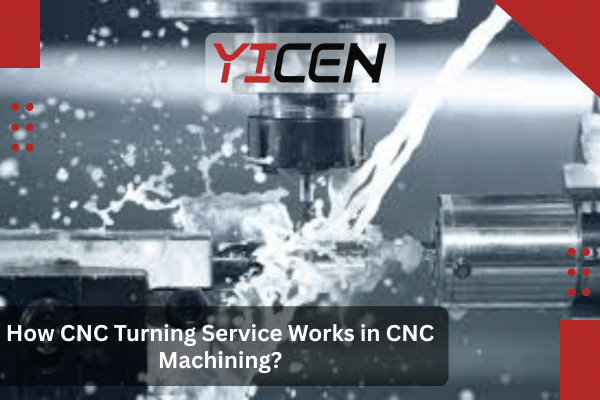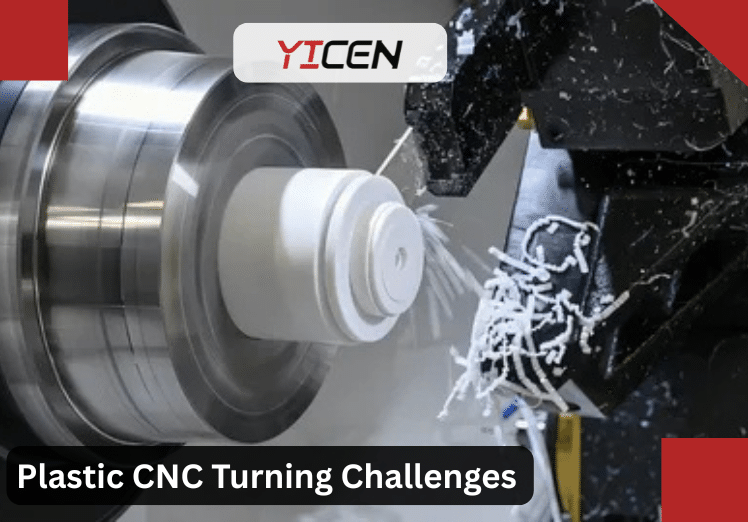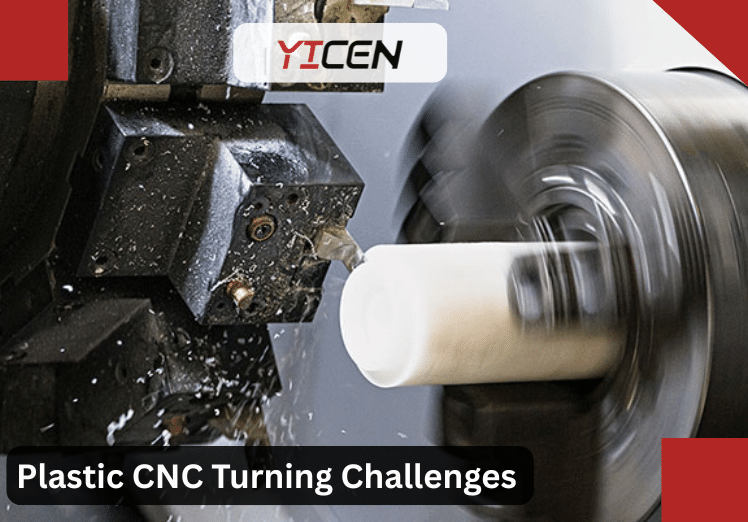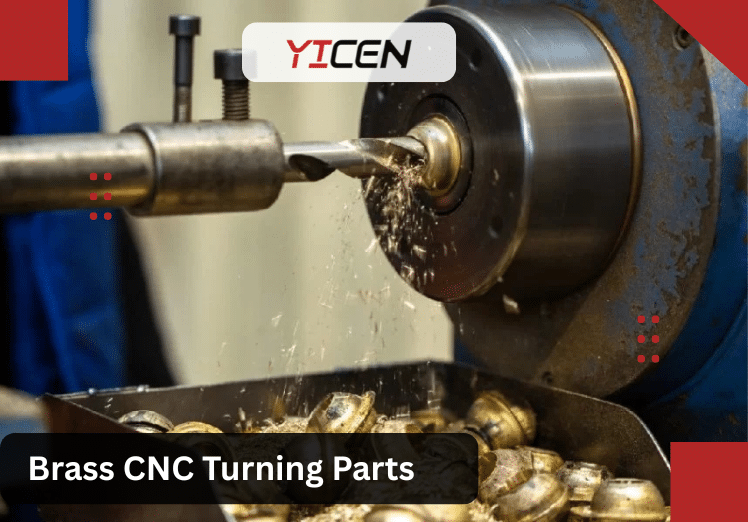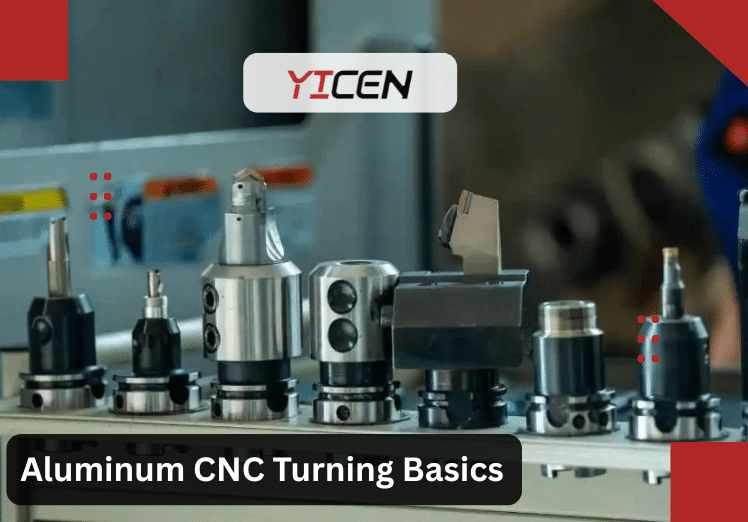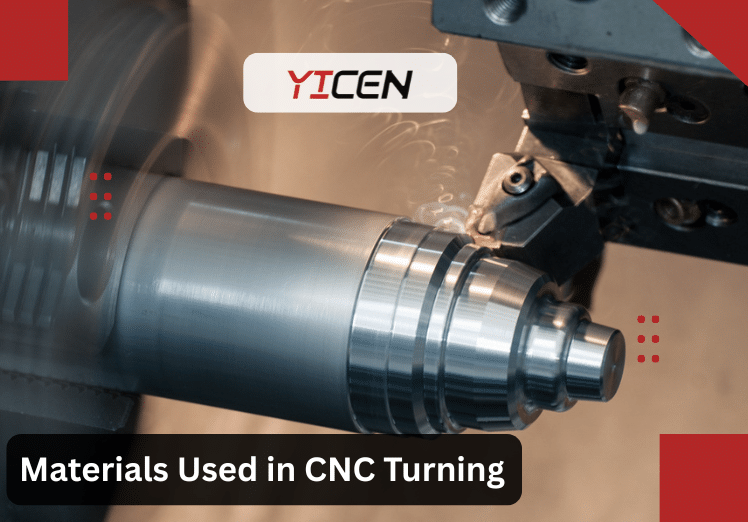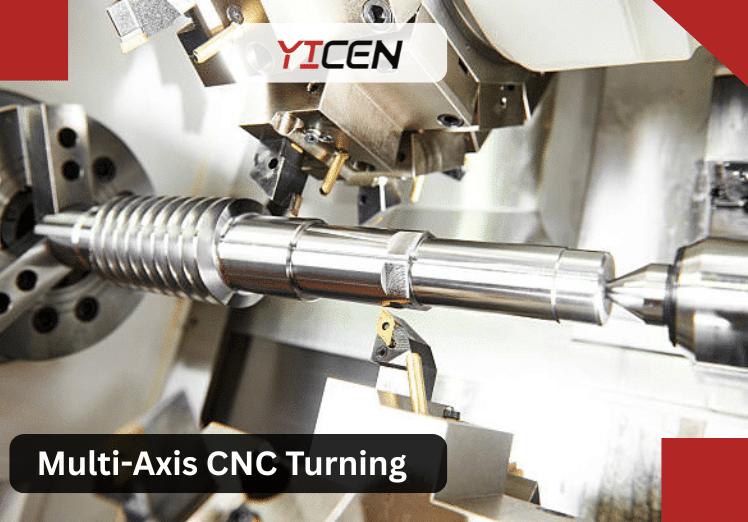CNC turning service transforms raw materials into precise cylindrical parts using computer-controlled turning lathes. This cnc turning process rotates workpieces while a cutting tool systematically remove material to create exact specifications. CNC turning is a subtractive manufacturing method that has revolutionized industries from automotive to aerospace with exceptional accuracy.
According to the U.S. Bureau of Labor Statistics, CNC machining occupations are projected to grow 13% through 2032¹. This growth reflects increasing demand for cnc turned parts and precision machining across manufacturing sectors.
Turning is a subtractive manufacturing process where facilities can produce parts with tolerances as tight as ±0.005mm. Modern cnc lathe services deliver production parts in days while maintaining consistent quality for both custom prototypes and end-use production applications.
How CNC Machine Technology Works
A cnc machine designed for turning operations uses numerical control systems to execute precise movements. The computer program controls spindle speed, cutting tool positioning, and machining parameters automatically. Advanced cnc turning machines operate continuously while maintaining accuracy for metal and plastic components.
Modern cnc lathe machine systems feature multiple axes and live tooling capabilities. These machines can perform both turning and milling operations in single setups, reducing handling time and improving precision. Using a cnc lathe enables manufacturers to turn parts in as fast turnaround times.
Key cnc machine components include:
- Spindle for workpiece rotation and precise cylindrical parts
- Tool turret with automatic cutting tool changing
- Live tooling lathe capabilities for secondary operations
- Control system managing all machining operation functions
Multi-axis cnc equipment handles complex parts requiring taper turning and intricate geometries.
The Role of CNC Lathe in Precision Manufacturing
The cnc lathe serves as the foundation for lathe turning operations. Unlike traditional manual lathe or turning equipment, a cnc turning lathe maintains consistent accuracy through computer control. Modern cnc lathe systems handle complex parts impossible with manual lathe or turning machine operations.
A typical cnc lathe accommodates workpieces from small precision components to large industrial lathe parts. The cnc lathe maintains dimensional accuracy throughout extended production runs, making it ideal for both custom cnc prototyping and manufacturing parts quickly.
Services using a cnc lathe can produce parts with tolerances for cnc operations as tight as ±0.005mm. CNC turning produces consistent results across metal or plastic materials while maintaining superior surface finish quality.
| Feature | CNC Lathe | Traditional Lathe |
| Precision | ±0.005mm or better | ±0.05mm typical |
| Repeatability | Excellent | Operator-dependent |
| Production Speed | Quick turn parts | Limited by skill |
| Complexity Handling | Complex parts | Simple shapes only |
Metal Parts Production Through CNC Turning
Metal parts manufactured via cnc turning service span numerous applications requiring accurate machining. The process excels at creating cylindrical parts from metal and plastic materials with precise dimensions. Different custom metal types require specific cutting parameters for optimal metal and plastic turned parts.
CNC turning services using advanced equipment can handle various metal and plastic part options:
- Aluminum parts: Lightweight with excellent machinability
- Steel: High strength for demanding production parts
- Stainless steel: Corrosion resistance for harsh environments
- Brass: Good conductivity for electrical parts made
- Titanium: Aerospace applications requiring strength-to-weight ratios
Metal selection impacts both manufacturing cost and part performance. Parts are left with visible tool marks that can be minimized through proper surface finish techniques. Modern rapid machining capabilities ensure parts quickly reach customers with consistent quality.
Professional Machining Service Solutions
Comprehensive machining service providers offer integrated manufacturing solutions beyond basic turning. Professional machining service companies invest in advanced equipment and maintain quality certifications like ISO 9001:2015.
Modern machining service capabilities include:
- Multi-axis machining for complex geometries
- Live tooling integration
- Advanced inspection equipment
- Material certification and traceability
- Technical engineering support
Quality machining service providers utilize statistical process control and maintain detailed documentation for regulated industries.
Essential Tool Selection for CNC Turning
Cutting tool selection critically impacts cnc turning service results. Advanced tool materials like carbide and ceramic provide excellent wear resistance and extended life. Proper tool geometry depends on material type and part specifications.
Tool categories for turning operations:
- Turning tools for external profiles
- Boring tools for internal diameters
- Threading tools for precise threads
- Grooving tools for slots and separations
- Parting tools for part separation
Modern tool holders incorporate rigid clamping systems for maximum stability during cutting operations.
CNC Machining Service Portfolio
Full-service cnc machining service providers combine multiple manufacturing processes using different type of cnc equipment. Integrated cnc machining service solutions reduce lead times and simplify project management through available for an instant online quoting systems.
Advanced cnc machining service offerings include:
- Parts for rapid prototyping within 24-48 hours
- Production parts with volume discounts and cnc machining capabilities
- Multi-axis cnc capabilities for complex parts requiring precision turning
- Secondary operations including cnc milling and drilling
- Finishing services with various surface finish options
Modern facilities serve as a one-stop shop for cnc turning with comprehensive machining uses across industries. Plastic part options are available alongside metal and plastic parts for diverse applications.
Machine Parts Manufacturing Standards
Machine parts produced through cnc turning service must meet exacting specifications for prototypes and production parts. Critical machine parts often require tolerances for cnc operations measured in thousandths of an inch for proper equipment function.
Machine parts applications span multiple type of cnc manufacturing sectors:
- Automotive engine and transmission parts for simple to complex assemblies
- Aerospace landing gear and engine cnc machined parts
- Medical surgical instruments and implant metal and plastic parts
- Industrial pump and valve turned parts
- Electronics heat sinks and connector housings
Quality machine parts require proper material selection, precision machining, and thorough inspection before delivery. Modern cnc turning center equipment ensures consistent dimensional accuracy across all production parts.
Turned Parts Quality and Consistency
Turned parts manufacturing demands careful attention to process control and quality assurance. Professional facilities implement statistical process control for consistent turned parts production.
Quality control procedures for turned parts:
- Incoming material inspection
- First article inspection verification
- In-process monitoring of critical dimensions
- Final inspection with certified equipment
- Complete documentation and traceability
Surface Finish Specifications
Surface finish requirements vary significantly based on application demands. Different surface finish levels affect both functionality and manufacturing cost.
| Surface Finish (Ra) | Description | Typical Applications |
| 32 μm | Rough machining | General components |
| 8 μm | Standard finish | Most applications |
| 1.6 μm | Fine finish | Precision components |
| 0.8 μm | Very fine | Critical surfaces |
| 0.4 μm | Mirror finish | Optical components |
Achieving specific surface finish requirements influences tooling selection and cutting parameters.
Machining Materials Selection
Machining materials selection impacts both manufacturability and part performance. Different machining materials present unique challenges requiring specialized techniques and tooling.
Machining materials categories:
- Aluminum alloys: Excellent machinability and lightweight
- Carbon steels: Good strength with moderate machining requirements
- Stainless steels: Corrosion resistance with work hardening tendencies
- Brass and bronze: Excellent finish quality and conductivity
- Engineering plastics: Chemical resistance and lightweight
Material expertise becomes crucial for successful project outcomes with challenging machining materials.
CNC Machining Materials for Specialized Applications
Advanced cnc machining materials enable high-performance applications in aerospace and medical industries. These cnc machining materials often require extensive process development and specialized tooling.
High-performance cnc machining materials include:
- Titanium alloys for aerospace applications
- Inconel superalloys for high-temperature service
- Hardened tool steels for wear resistance
- PEEK plastics for chemical compatibility
- Medical-grade stainless steels for biocompatibility
Applications of CNC Technology
The applications of cnc technology continue expanding across manufacturing sectors. New applications of cnc emerge regularly as technology advances and costs decrease.
Primary applications of cnc turning include:
- Automotive brake and engine components
- Aerospace turbine and structural parts
- Medical device components and implants
- Industrial machinery and pump parts
- Electronics housings and heat management
CNC General Knowledge Requirements
CNC general understanding includes fundamental concepts essential for manufacturing success. Basic cnc general knowledge covers programming principles, tooling selection, and quality control methods.
Essential cnc general concepts:
- Coordinate systems and programming basics
- Cutting parameter optimization
- Tool selection and maintenance
- Material property considerations
- Inspection and measurement techniques
Advantages of CNC Turning Technology
The advantages of cnc turning make this technology indispensable for modern manufacturing. Key advantages of cnc turning include exceptional accuracy, excellent repeatability, and high production efficiency.
Primary advantages of cnc turning:
- Precision within ±0.005mm consistently
- Identical parts across large quantities
- Continuous operation with minimal supervision
- Complex geometries in single setups
- Consistent surface finishes and dimensions
Turning Center Capabilities
Advanced turning center equipment represents the latest in cnc turning service technology. Modern turning center machines combine multiple operations in single setups, reducing handling and improving accuracy.
Turning center features:
- Multi-axis simultaneous machining
- Live tooling for milling operations
- Automatic tool and part changing
- Real-time process monitoring
- Predictive maintenance capabilities
Machining Process Workflow
The machining process involves several critical steps affecting final part quality. Each machining process stage requires careful attention to maintain accuracy and efficiency.
Standard machining process steps:
- Design review and manufacturability analysis
- Process planning and tooling selection
- Setup verification and program validation
- Production execution with parameter monitoring
- Quality inspection and documentation
Turning Machine Technology
Modern turning machine designs incorporate advanced features for enhanced performance. Contemporary turning machine technology prioritizes accuracy, efficiency, and operator safety.
Advanced turning machine capabilities:
- Multi-axis simultaneous operations
- Integrated live tooling systems
- Automated part handling and loading
- Advanced control systems with networking
- Energy-efficient operation and monitoring
CNC Machined Parts Quality Assurance
CNC machined parts quality depends on comprehensive inspection procedures. Critical cnc machined parts require complete dimensional verification and material certification for regulated applications.
Quality assurance for cnc machined parts:
- Dimensional inspection with certified equipment
- Surface finish measurement and verification
- Material property testing and certification
- Visual inspection for workmanship quality
- Functional testing when required
Specialized CNC Turning Services
Advanced cnc turning services address unique manufacturing challenges. Custom cnc turning services enable innovative designs and enhanced functionality for demanding applications.
Specialized cnc turning services:
- Multi-axis machining for complex geometries
- Hard turning of heat-treated materials
- Swiss-type precision for small components
- Heavy turning for large diameter parts
- Exotic material processing capabilities
Turning Solutions for Manufacturing Challenges
Effective turning solutions combine advanced equipment with skilled personnel. Comprehensive turning solutions integrate multiple technologies for optimal manufacturing results.
Modern turning solutions emphasize:
- Design optimization for manufacturability
- Process integration for efficiency gains
- Quality systems ensuring consistent results
- Technical support throughout project lifecycle
- Continuous improvement methodologies
Plastic CNC Machining Considerations
Plastic cnc machining requires specialized techniques managing heat generation and material properties. Plastic cnc turning enables lightweight, corrosion-resistant components for various industries.
Common plastic cnc materials:
- PEEK for high-temperature applications
- Delrin for dimensional stability
- Nylon for strength and wear resistance
- PTFE for chemical inertness
- Polycarbonate for impact resistance
Rapid Prototyping Parts Development
Parts for rapid prototyping accelerate product development timelines. CNC turning service providers excel at producing prototype parts for rapid prototyping with production-quality materials and finishes.
Parts for rapid prototyping benefits:
- Fast turnaround within days
- Production-quality materials and processes
- Design validation and optimization
- Smooth transition to volume production
- Cost-effective development cycles
CNC Turning Materials Properties
CNC turning materials selection requires understanding application requirements and machining characteristics. Different cnc turning materials offer varying combinations of properties affecting performance and cost.
Key cnc turning materials considerations:
- Machinability ratings and tool life
- Mechanical properties and durability
- Thermal expansion and heat dissipation
- Chemical resistance requirements
- Cost factors including material and processing
Conclusion
CNC turning service technology continues advancing with improved accuracy and cnc turning capabilities. Modern cnc turning service providers offer comprehensive turning solutions from parts for rapid prototyping to high-quality cnc production runs. Understanding cnc turning service fundamentals helps manufacturers make informed decisions about precision machining and parts made through advanced cnc turning process methods.
The combination of cnc lathe machine technology, skilled operators, and quality systems ensures reliable results for demanding applications. Professional cnc turning service providers maintain competitive advantages through continuous investment in cnc milling machine equipment and machining uses expertise.
Frequently Asked Questions
What is a CNC turning service and how does it work?
What materials can be processed through CNC turning?
How accurate can CNC turning achieve?
What industries use CNC turning services most?
How long do CNC turning projects typically take?
References
- U.S. Bureau of Labor Statistics. “Computer Numerically Controlled Tool Operators.” Occupational Outlook Handbook, 2024. https://www.bls.gov/ooh/production/computer-numerically-controlled-tool-operators-and-programmers.htm
- National Institute of Standards and Technology. “Manufacturing Extension Partnership.” https://www.nist.gov/mep
- International Organization for Standardization. “ISO 9001:2015 Quality Management Systems.” https://www.iso.org/iso-9001-quality-management.html

